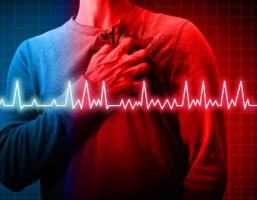Sudden Cardiac Arrest
Today we received a bad news that TV serial Anupama fame actor Rituraj Singh passed away due to a

Sudden Cardiac Arrest. All of his fans are shocked. Nowadays we are hearing a lot about Sudden Cardiac Arrest. Basically this is a life style disease. I asked my dear friend and Joint Secretary of WOW India Dr. Ruby Bansal about this and she sent this article “Understanding Sudden Cardiac Arrest: A Simple Guide for Public Awareness” which I am publishing here. Dr. Ruby Bansal is a Preventive Health & Infectious Diseases Specialist. She is MD, fellow HIV Medicine (MAMC,Delhi) and Fellow Infectious Diseases (CMC, Vallore ). Must read the article… Dr. Priya Kapoor, Editor WOW India’s Website…
Sudden Cardiac Arrest
A Simple Guide for Public Awareness
Satish Kaushik · Sidharth Shukla · Om Puri · Inder Kumar · Reema Lagoo · Farooq Shaikh · KK· Raju Srivastav and now actor Ritu raj died of cardiac arrest. So many deaths due to heart illness.
Why it’s happening ?

Understanding Sudden Cardiac Arrest: A Simple Guide for Public Awareness
Introduction: Sudden Cardiac Arrest (SCA) is a serious and life-threatening condition that can happen to anyone, anywhere, and at any time. It occurs when the heart suddenly and unexpectedly stops beating, leading to a lack of blood flow to the brain and other vital organs.
SCA is different from a heart attack, and it requires immediate action for the best chance of survival.
Causes: SCA can be caused by various factors, including heart rhythm disorders (arrhythmias), structural heart problems, or other underlying health conditions. Some common causes include coronary artery disease, heart muscle disorders, and electrical problems in the heart.
Symptoms: Unlike some other heart conditions, SCA often occurs without warning signs.
However, in some cases, people may experience symptoms such as dizziness, fainting, chest pain, or shortness of breath before a cardiac arrest happens. It's important to note that not everyone will have warning signs, making awareness and preparedness crucial.
Risk Factors: Certain factors may increase the risk of SCA, including a history of heart disease, family history of sudden cardiac arrest, smoking ,alcohol high blood pressure, diabetes, and a sedentary lifestyle and most important and dangerous is stress. And one more reason is excessive sudden exercise. Understanding these risk factors can help individuals take proactive steps to reduce their chances of experiencing SCA.
Immediate Response: The key to improving survival rates during SCA is prompt action. If you witness someone collapsing and suspect SCA, follow these steps:
- Call for help: Dial emergency services immediately.
- Start CPR: Begin cardiopulmonary resuscitation (CPR) by giving chest compressions. Push hard and fast in the centre of the chest at a rate of about 100-120 compressions per minute.
- Use an AED: If available, use an automated external defibrillator (AED) if trained to do so. AEDs can analyse the heart's rhythm and deliver a shock if necessary, helping to restore normal heart function.
Prevention: While SCA cannot always be predicted or prevented, adopting a heart-healthy lifestyle can significantly reduce the risk. This includes regular exercise, maintaining a balanced diet, avoiding tobacco and excessive alcohol consumption, and managing stress.
Regular health check-ups and screenings are also essential for identifying and managing potential risk factors.
Conclusion: Increasing public awareness about sudden cardiac arrest is vital for saving lives.
Understanding the causes, recognizing the symptoms, and knowing how to respond quickly can make a significant difference in the outcome. By taking preventive measures and being prepared, individuals can contribute to a safer and healthier community.
Ask questions if any we will be happy to answer all your queries.
DR Ruby Bansal
Preventive Health & Infectious Diseases Specialist
MD, fellow HIV Medicine (MAMC,Delhi)
Fellow Infectious Diseases (CMC, Vallore )

